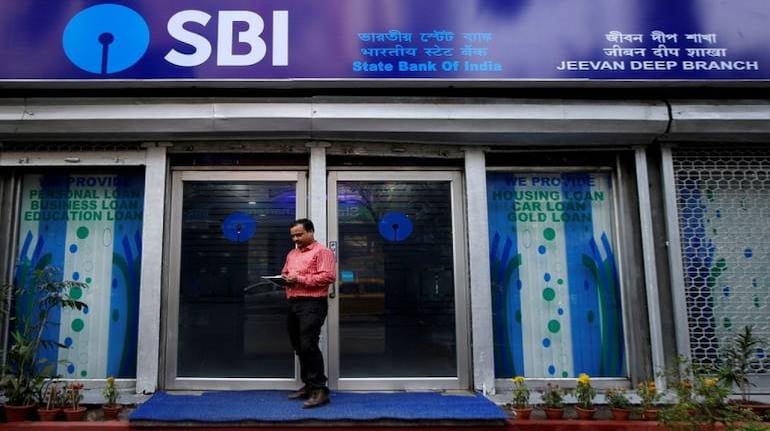
State Bank of India will be holding a mega e-auction of over 1,000 open plots, commercial, residential and industrial properties on February 26, 2020.
It will be auctioning these non-performing assets (NPAs) this month to recover its dues from those borrowers, sources said.
These properties are located in New Delhi, Ghaziabad (Uttar Pradesh), Shahjahanpur (UP), Badanpur (UP), Lucknow (UP), Kottayam (Kerala), Kollam (Kerala), Palakkad (Kerala), Burdwan (West Bengal), Nadia (West Bengal), Karur (Tamil Nadu), Nilgris (Tamil Nadu), Erode (Tamil Nadu), Tiruppur (Tamil Nadu), Tindivanam (Tamil Nadu), Coimbatore (Tamil Nadu), Namakkal (Tamil Nadu), Jaipur (Rajasthan), Amreli (Gujarat), Ahmedabad (Gujarat), Anand (Gujarat), Jalgaon, Nandurbar, Nagpur (Maharashtra), Boripada (Orissa), Ramgarh (Jharkhand), Durg (Chattisgarh) among others.
The bidders can bid for the properties online after registering online by February 26, 2020 on the website of https://www.bankeauctions.com/SBI or https://ibapi.in or https://sbi.auctiontiger.net or www.tenderwizard.com/SBIEAUCTION.
Most of these properties are those that have been pledged as collateral for housing and other business loans and taken over by the bank under the Security and Reconstruction of Financial Assets and Enforcement of Security Interest (Sarfaesi) Act due to non-payment of pending dues by the borrowers. The defaulters were given a notice period of 60 days under the Sarfaesi Act, after which the properties were seized and auctioned.
"If a borrower fails to honour the loan, we start the legal process and repossess the property and later sell it at an e-auction. We have empanelled valuers who keep the construction, location and the area in mind before valuing the property. The plausible value given by them helps us set the reserve price which is disclosed to the bidder beforehand. Those interested in the bid have to deposit an initial amount of 10to 15 percent of the value of the property," said a bank official.
But do banks make a profit from e-auctions?
“In the current market conditions we try and recover the principal amount. We were able to make 15 to 25 percent profit earlier but now we are not even able to recover auction and valuation costs,” says an official not wanting to be named.
Buyers should not have the misconception that these properties always have legal issues attached to them. “Banks are in a position to auction properties only if they have a clear legal title. Also, prices of such properties are at least 5% to 10% less than the market value, so it’s worth signing up for the auction. Also, it is a direct deal between the buyer and the bank as there are no agents or brokers involved,” says a bank official.
As per the Act, those signing up for the e-auction have to pay 10% of the reserve price set for the distressed property which is returned in case the bidder is not successful. If the bidder is successful, the amount is adjusted in the final price.
Banks seize properties when they are convinced that the borrower will not be able to repay a loan. After the borrower misses multiple payments, the lender auctions the property to recover the outstanding principal and interest amount. Given the troubled past of such properties, they are usually available at a discount to the market price.
Banks give out details of the properties they are auctioning. A portal launched by the Indian Banks Association (IBA) provides a common platform. Prospective buyers can log on to ibapi.in, register themselves, view details of properties and even participate in the auction process.
In case of residential properties that are auctioned, buyers should check if there are any "liabilities associated with the property that is being auctioned".
"These could include society dues and other liabilities unknown to the lenders. There is always a deficit in information and the discount on offer is due to that. On an average such properties sell at a discount of 15 percent," said a valuer.
Banks get the premises vacated before they are auctioned and have to get possession of the house through a collector or a district magistrate to avoid any law and order issues.
Since those bidding for the property in an e-auction are allowed to inspect the property, they should check from the society if there are any dues pending against the property in question. There could be cases of subletting that may not be known to the bank. If that is the case, the buyer who purchases such a property will not be in a position to sell without the tenant’s approval. Sub-tenancy can create its own share of problems. No buyer will know that until he actually goes and resides in that property, he adds.
Also, if a buyer plans to take a loan for purchasing the property, he should try and get an in-principle home loan approval from the lender. Banks give such loan approvals solely on the basis of the credit history and repayment capacity of the bidder. The loan is sanctioned by the bank on the condition that the bidder will cover the applicable property registration charges, stamp duty and other legal costs and submit the valid property registration document with the bank, before the disbursal of the actual loan.
Discover the latest Business News, Sensex, and Nifty updates. Obtain Personal Finance insights, tax queries, and expert opinions on Moneycontrol or download the Moneycontrol App to stay updated!
Find the best of Al News in one place, specially curated for you every weekend.
Stay on top of the latest tech trends and biggest startup news.